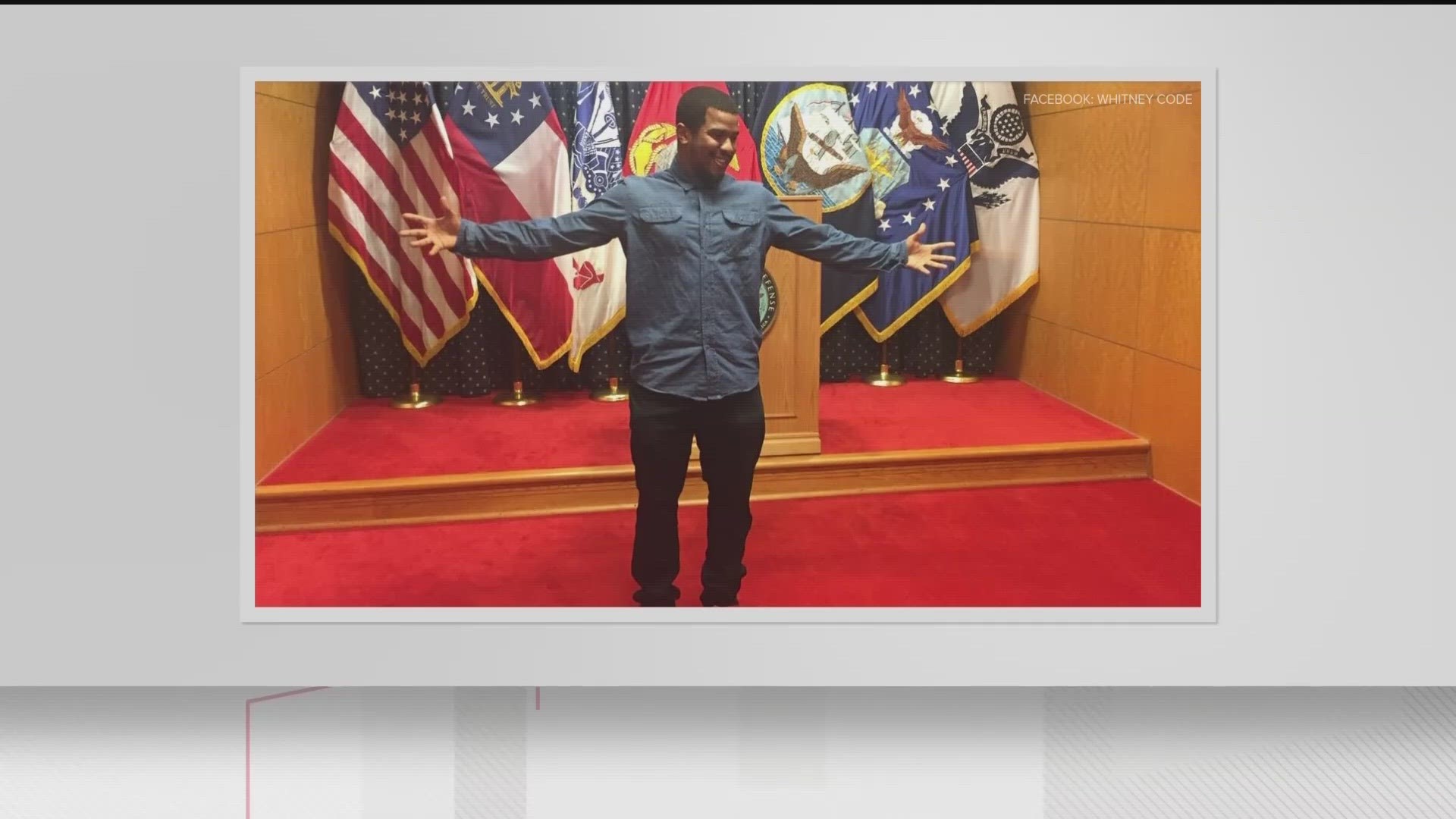ATLANTA — So far in 2023, the number of mass shootings reported is outpacing the number of days in the year. As of Thursday night, Gun Violence Archive reported 193 mass shootings. These mass shootings are characterized by four or more victims.
"The impulse for people is to think that any sort of severe, tragic, almost unbelievable incident is related to mental illness," Ragy Girgis, MD, MS, who is an Associate Professor of Clinical Psychiatry at the Columbia University Irving Medical Center explained.
Deion Patterson, 24, is accused of walking into Northside Hospital Midtown on Wednesday and shooting five women. Amy St. Pierre, 38, was killed in the shooting. The four other women were rushed to Grady Hospital.
As of Thursday night, three of the women remain in the ICU. The fourth survivor remains hospitalized in stable condition.
RELATED: Atlanta shooting: 911 dispatchers speak of taking the first calls for help, and racing to save lives
While a motive has not been released in the mass shooting, within hours of the initial call Patterson's mother pointed to "mental illness" and told the Associated Press the Department of Veterans Affairs mixed up her son's medication. She said they were seeking treatment at Northside along W. Peachtree Street when at some point, something triggered Patterson causing him to open fire. Atlanta Police confirmed Patterson was running late for his appointment.
11Alive's Cody Alcorn reached out to the Department of Veteran Affairs with multiple questions about the claims made by Patterson's mother. A spokesman sent him the following response:
“We are horrified and saddened by the tragic shooting in Midtown Atlanta. Due to patient privacy, we cannot discuss the Veteran’s personal information without written consent.”
Dr. Girgis said it's a natural impulse to assume "mental illness" when referencing possible motives for such horrific events.
"The fact of the matter is, is that the question is really an empirical question. And we can answer empirically, meaning with data. The data are very clear that about 95% of mass shootings are not attributable to mental illness. So it's really a data question. And when we look further into it and we look into motives and those sorts of things, we find that that is the case. When mental illness is present, it's usually incidental," Dr. Girgis explained.
He added, "We know that certain mental illnesses do, in fact, ever so slightly increase the risk of violence compared to someone who doesn't have mental illness. And by emphasis, I mean by a few percent. Now, the mechanism by which means certain mental illnesses do that is by impairing impulse control. That affect and this has all been shown in research studies, it's very clear that effect is primarily seen in women. The reason that's the case is because men, especially younger men, but men in general, already have problems with impulse control. So what we see, and again demonstrated by data, is that when mental illness plays a role in perpetration of violence that is almost exclusively seen in women. And what do we know about people who perpetrate mass shootings? They're almost never women."
Dr. Girgis said we really need to look at societal drivers when talking about preventing such tragedies.
"What we know is that mass shootings were very stable, completely stable, the rate accounting for population between 1900, about 1970 and 1975. Since then, the rate has been growing to now four times the rate that they were. Again, this accounts for population. So we need to understand why the rate is increasing. And these are societal problems. There are a number of reasons. One is that there are concerns and issues surrounding gun availability that need to be managed. A few others include that before the 1970s, the primary influences on people were parents and teachers. Since then, the media has, especially the entertainment media, has had more of an impact and influence on young people's lives and development. And they tend to romanticize guns and gun violence. And that is obviously something that needs to be mitigated," Dr. Girgis said.
On Thursday night, 11Alive also talked to licensed counselor Laura Morse about the Midtown shooting and the early-on correlation between the violence and "mental illness."
"There are people who live with anxiety, who live with depression, who live with substance abuse, who are not violent," Morse said.
She added, "I do feel like something has got to change and we cannot scapegoat really anything. If it is a mental health issue, where are the resources?"
Morse also agreed with Dr. Girgis that there is concern growing about gun availability across the country.
"If it's a gun issue, what is truly being done to make changes around that," she asked.
Atlanta Police Chief Darin Schierbaum said Patterson is not cooperating with APD investigators.

